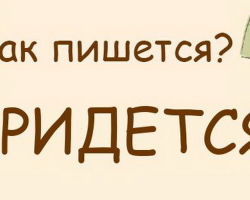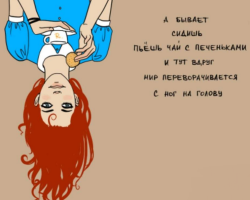From this article you will learn when serfdom was canceled in Russia, who canceled and why.
Content
- When, in what century did serfdom canceled in Russia?
- Who canceled serfdom in 1861: what king, emperor, what Alexander?
- Why did serfdom cancel?
- The abolition of serfdom: what does the “right of Russia” say about this?
- “It is better to cancel serfdom from above”: explaining the quote, what did the emperor mean?
- Why didn't Catherine cancel serfdom?
- Why did Alexander I and Nicholas I cancel serfdom?
- Video: abolition of serfdom
For many centuries, feudal lords and peasants existed in Russia. Some enslaved others and forced to work on Earth. But soon the ordinary people were liberated and serfdom was canceled. Who did it and when? Look for answers to this question in this article.
When, in what century did serfdom canceled in Russia?

Serfdom first appeared in 11th century in Kievan Rus and lasted until 19th century. When, in what century did serfdom canceled in Russia? The emancipation of the population took place in several stages:
- The first step was the manifesto of the three -day corvee. He was signed April 5 (according to the new style) 1797 On the day of the coronation Paul I. According to this document, the peasants were supposed to work for the landowner three days a week, and Sunday was declared a day off.
- The emperor took the second step Alexander I. He February 20, 1803 He issued a decree on free stoopers. This order stated the possibility of obtaining his allotment of land and free for the serf, if he is able to redeem himself. also in 1808 forbidden to sell slaves at fairs, and with 1833 Separate members of one family.
- FROM 1816 on 1819 serfdom was gradually abolished in the Baltic territory of the Russian Empire.
- The final point in serfdom put a manifesto Alexander IIfrom 19 February 1861.
True, the abolition was mainly on paper, since most peasants were in strong material dependence on the landowner and did not always have their own housing and could provide themselves.
Who canceled serfdom in 1861: what king, emperor, what Alexander?

For many years, serfdom has been binding on many peasant families. No one dared to go against the established rules, everyone obeyed and followed the laws. The peasants were forced to work, for the benefit of their owners, who enjoyed the fruits of other people's labors.
As mentioned above, everything has changed when the king came to power Alexander II, having revised the law on serfdom and February 19, 1861 signed a manifesto. Thanks to the abolition of serfdom, peasants can be free and not curtain from the above people. The ruler took such measures because he was afraid of a rebellion among the peasant people. If the emperor had not made such a decision, perhaps in the near future, the peasants would have freed themselves, having arranged a general strike.
It's important to know: After the adoption of the new law, a turning point in the history of Russia has come. Thanks to Alexander II, every resident in Russia became independent and could dispose of his life as he wanted. Who knows how modern society would live if it were not for the abolition of serfdom in 1861, perhaps the state would develop in a completely different way.
Serfdom in Russia can be called a form of slaveholding, which was applied only to poor rural residents. After in 1856, the Crimean battle was lost, it was visible with the naked eye that Russia was behind development from other countries. Over the next few years, Alexander II He made every effort to develop his power and improve the life of subjects, including ordinary peasants.
Why did serfdom cancel?

Fucking is a heavy burden for peasants, who completely depended on the landowners and did not have their own means of existence. Therefore, the emperor decided to cancel this system. But there are other reasons why serfdom was canceled. Here are the main ones:
- Serfdom prevented the development of industry. Russia could not properly accumulate capital and could become a poorly developed country.
- At this time, there was a rapid ruin of peasants. The landowners made the corvee to be large. The peasants left for the factories. The serfdom did not develop, since the work of the peasants was forced and ineffective.
- The crisis in serfdom entailed a defeat in the Crimean War. After this war, it became clear that Russia is a backward country in terms of military-technical equipment. The financial system began to “limp”, the peasants suffered ruin due to great requisitions and the growth of duties. They began to run massively from the landlords.
- The peasants were already so tortured by serfdomthat at any moment the top of the authorities and the emperor himself could rebel and this began to be afraid of this.
- Rebellions of peasants could turn into disparate performancesWhat could lead to the appearance of a new "Pugachevshchina".
In addition, serfdom, as a form of slaveholding, has undergone condemnations by all layers of society of that time.
The abolition of serfdom: what does the “right of Russia” say about this?

Of course, all Russians support the abolition of serfdom. After all, modern people represent how hard it was for ordinary peasants who were supposed to exist in the ledge and work for the master.
"Right of Russia" This says that serfdom is an excessive burden for every peasant of that time. But this is the patriotism and wisdom of the people who had to go through it to become better and more powerful.
Interesting: Many historians and jurists are sure that serfdom is the best and brightest that Russia had that time.
The boyars gave funds to the peasants, and they, in turn, worked on their land.
“It is better to cancel serfdom from above”: explaining the quote, what did the emperor mean?

The ruling circles of that time realized that serfdom was a “powder barrel” in the state. From most of the upper reaches - landowners, scientists, relatives of the king, proposals on the projects of reforming land relations began to receive. Later, Alexander II, speaking to the nobles, said: "It is better to cancel serfdom from above, otherwise the peasants themselves will free themselves from below". What did the emperor mean? Here's an explanation of quotes:
- The peasants were already tired of serfdom and were ready for uprisings.
- If you can’t cancel serfdom, then the common people will rebel and free themselves.
- But this will lead to undermining the financial system and the economy of Russia.
Therefore, it was decided to cancel serfdom precisely by decree of the emperor.
Why didn't Catherine cancel serfdom?

Catherine was a great ruler. Often those who study history have a question, why did Catherine not cancel serfdom? Here's the answer:
- The empress actively prescribed legal norms and issued decrees. She wanted to develop new arches of laws.
- The newly issued decree was a kind of instruction to clarify folk needs and wishes.
- Thanks to such instructions, it was planned to create completely new laws for the country.
- But in the commission only a few of its members advocated the fate of the peasants. They proposed reducing peasant duties and were even ready to bring innovations to the law that allows the peasants to be at the disposal of a special commission, which would be engaged in the appointment of a duties in favor of the master.
- At the same time, most of the landowners were against such an innovation, and they began to zealously defend serfdom and their privileges.
- The empress could not argue with them, since she was afraid to lose power and throne.
After the commission was dissolved, and the decree was canceled as unnecessary. Everything, regarding serfdom, remained in their former places, and ordinary people continued to carry their burden of serfdom.
Why did Alexander I and Nicholas I cancel serfdom?

Alexander I tried in vain to cancel serfdom, since during his reign the serfs were still very strong. The king had no support among the landowners, and the emperor had no choice but to fulfill their will. The public forces that would oppose serfdom at that time, and there was no one to rely on the king.
Nicholas I was worried that the abolition of serfdom would bring even more problems. He knew that serfdom was evil, but the emperor feared that public unrest would occur. He was afraid to introduce innovations in relation to the abolition of serfdom, so that it would not be even worse.







